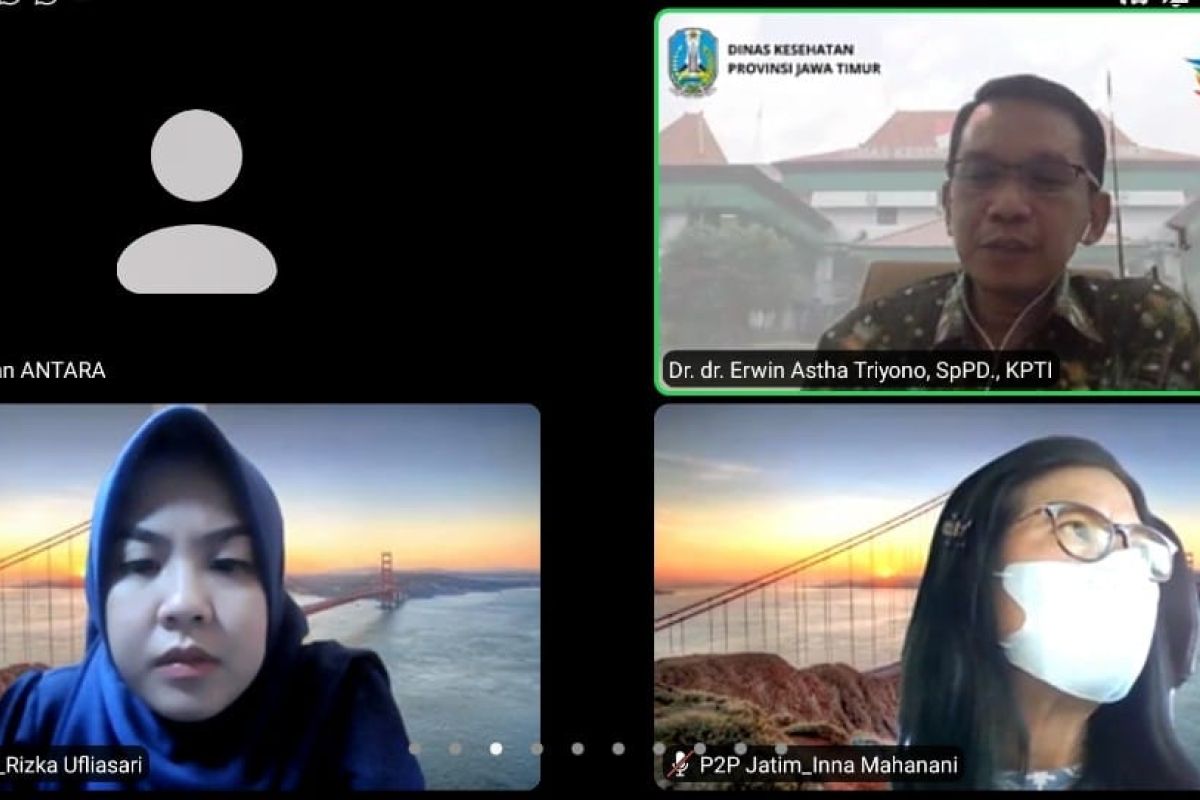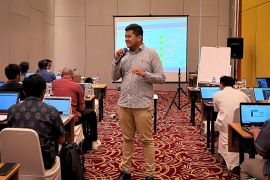The 114 cases found in 18 districts/cities…were not acute hepatitis, but acute jaundice syndrome or acute jaundice.Surabaya (ANTARA) - Head of the East Java Health Service, Erwin Astha Triyono, has informed that the service has not detected any acute hepatitis cases of unknown origin in the province.
"The 114 cases found in 18 districts/cities, based on the East Java Early Alert and Response System (SKDR) data received as of May 4, 2022, were not acute hepatitis, but acute jaundice syndrome or acute jaundice," he said in a virtual statement on Friday.
SKDR is an application devised to follow up on early findings of a disease, he added.
"SKDR is an application that receives data from all health services. Currently, there are findings related to acute jaundice. So, this is an alert regarding jaundice," he said.
After receiving a report from SKDR, the East Java Health Service verifies the cases, checks their causes, and determines whether they are infectious or non-infectious.
Related news: Ministry verifying four suspected cases of mysterious hepatitis
"Furthermore, (the service determines) whether this is related to acute hepatitis whose etiology is unknown or not, it turns out that until May 2022, this finding does not belong to the acute hepatitis group with unknown cause," he informed.
One of the signs of acute hepatitis is jaundice, however, patients who contract jaundice may not necessarily have acute hepatitis since jaundice can be caused by typhus and malaria, among others, according to Triyono.
"Therefore, it is necessary to find the cause. I emphasize there have been no reports related to acute hepatitis in East Java," he said.
Related news: Sulianti Saroso Hospital designated referral center of acute hepatitis
Triyono then asked people to be more careful, but remain calm and take preventive measures by adopting a Clean and Healthy Lifestyle (PHBS), including frequently washing hands with soap, drinking clean and boiled water, and ensuring their food is clean and fully cooked.
People must also use their own eating utensils, wear masks, maintain distance, and avoid contact with sick people.
"For the time being, do not swim in public swimming pools, do not play on the ground, avoid touching hand railings, doorknobs, walls, and other things that people often touch," he added.
Related news: Gov't conducts epidemiological investigation over acute hepatitis
Related news: West Papua to intensify vigil over mysterious acute hepatitis
Translator: Fiqih A/Willy I, Resinta S
Editor: Fardah Assegaf
Copyright © ANTARA 2022












